Homemade Bleach Alternative recipe that uses all natural ingredients found in your home and costs 1/3 less than store-bought. Plus it works great too! Also try using my Homemade Laundry Detergent which is perfect for sensitive skin!
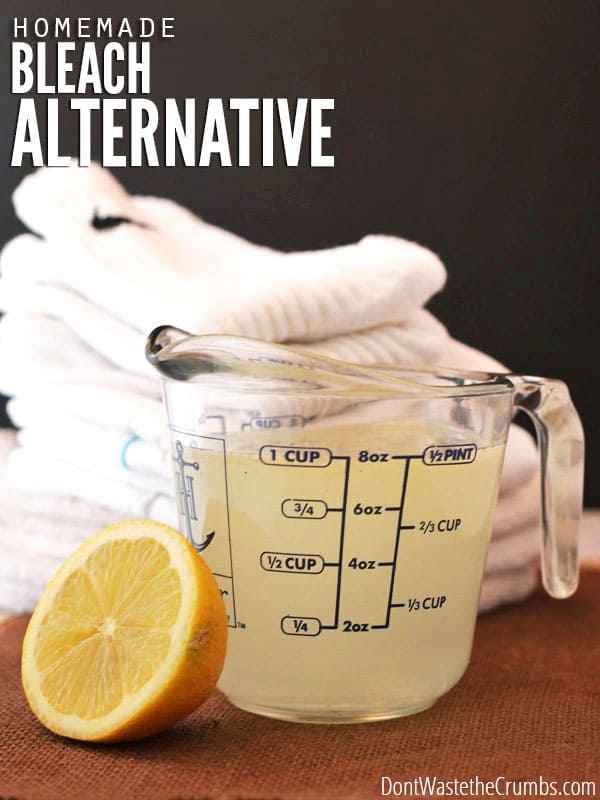
A few big changes happened when we brought our first child home from the hospital.
Of course there’s the obvious: we added a member to the family.
But we also started thinking about putting locks on cabinets (which we didn’t do), figured out how to open and close a stroller with one hand (which deserves an award), and essentially gave up on sleeping altogether.
On a more personal note, I also stopped buying bleach and stopped sorting laundry.
Between Mr. Crumbs and I, there was only a red shirt or two in the house. So I figured as long as those shirts DIDN’T get washed with everything else and Mr. Crumbs wasn’t left wearing pink undershirts to work, I was good to go.
Fast forward 7 1/2 years and while sleeping is still a luxury, it happens on most nights. This now affords me time to reflect on things like what kind of glue is used for the stickers on my produce, why little building blocks that claim “guaranteed to fit 100% with other name-brand building blocks” don’t really fit (yes, I’m talking about you wannabe LEGOs) and how Mr. Crumb’s whitey tighties weren’t as white as they used to be.
Which led me to rethink my ban on bleach.
For like, two seconds.
I didn’t research bleach and whether or not it’s healthy and all that stuff, because I think it’s safe to say that bleach isn’t the best cleaning solution out there. You can’t eat it, it smells awful and it’s dangerous for kids. A triple whammy in my book and in this season of life, I’m kind of ready to find a better, more natural alternative anyway.
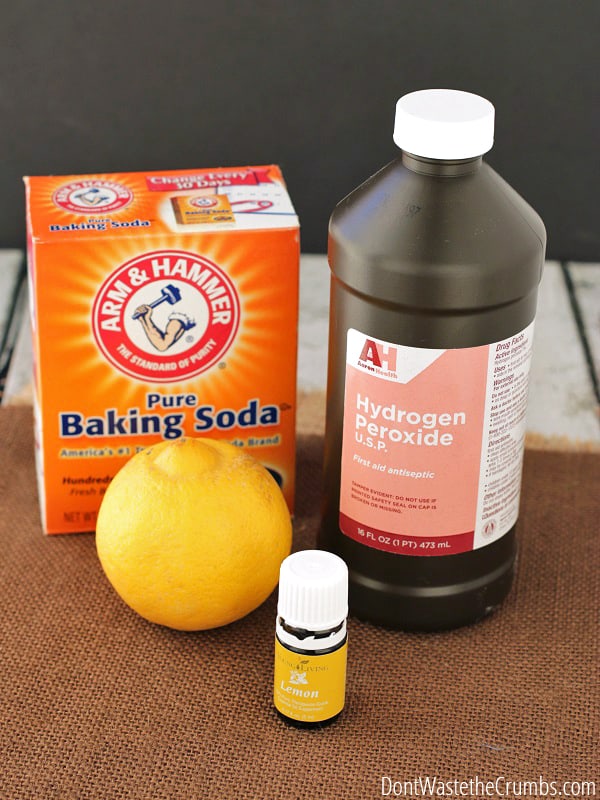
In the arena of homemade bleach alternatives, there seem to be a few major key players:
- hydrogen peroxide
- lemon juice
- baking soda
- vinegar
- citric acid
- lemon essential oil
The goal is to find a winning combination that a) brightens your clothes, b) smells good, and c) doesn’t irritate your skin.
All of the items above will gently brighten clothes, but you can’t just mix it all up in a pot and expect success. In fact, mixing vinegar and hydrogen peroxide creates peracetic acid which can be incredibly irritating to the skin, eyes and nasal passageways.
Seeing as I’m not really wanting to burn myself while doing laundry, and not really sure how this combination would affect my clothes in the long term, I scratched vinegar off the list.
Citric acid helps make the cleaning solution more effective if you have hard water, but I don’t keep this on hand and don’t want to buy it just for this recipe. So that got scratched off the list too.
After several rounds of washing our white cloth napkins and Mr. Crumbs undershirts, I’ve come up with a combination that gets the job done!
DIY: All-natural Homemade Bleach Alternative
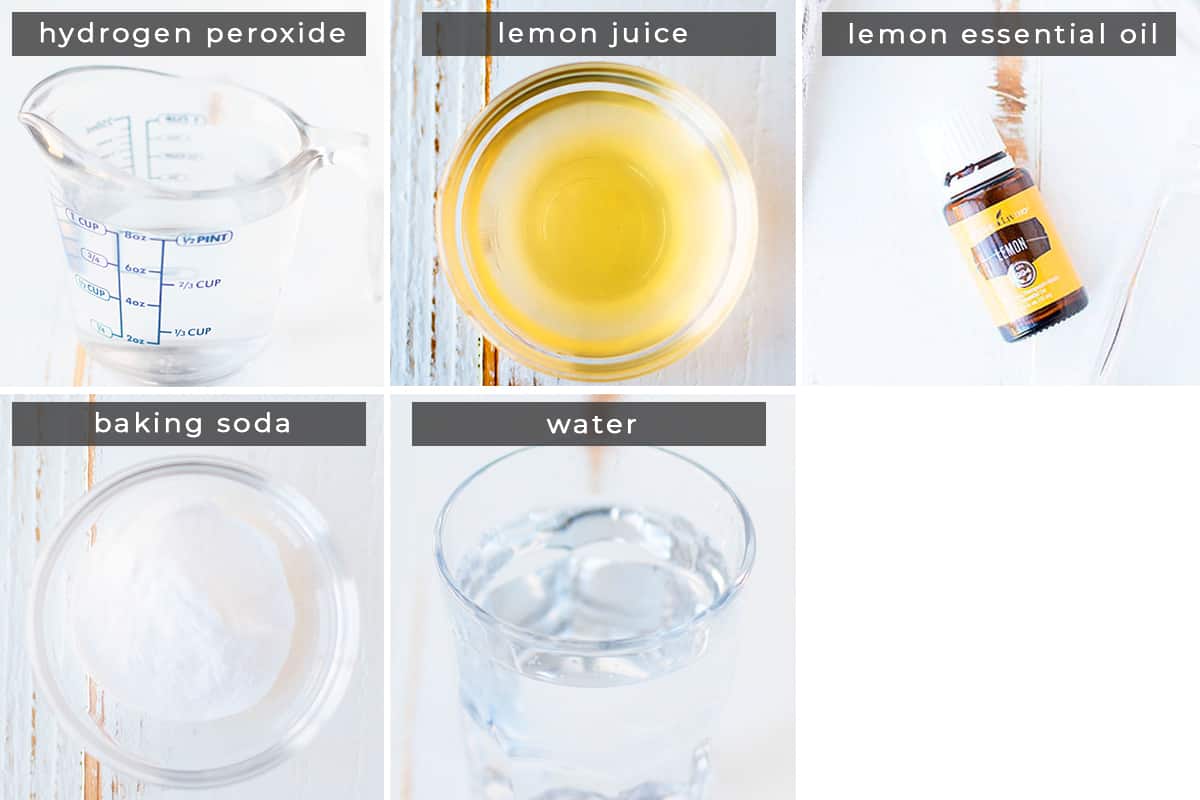
Supplies
- 3/4 cup 3% hydrogen peroxide
- 1/4 cup lemon juice
- 10-15 drops lemon essential oil**
- 3/4 cup baking soda
- 7 cups water
*Note: I love Plant Therapy essential oils. You can find their shop here.
I’ve also switched from my homemade laundry detergent to Thieves laundry detergent. I’ve found that it is washing my clothes MUCH better and is also MUCH cheaper!
Method
Combine all ingredients in a container capable of holding 1/2 gallon or more. Shake well.
Use 1 cup per load, washing with the hottest water setting available.
Additional Recipe Notes
Some other recipes call for equal parts hydrogen peroxide and lemon juice, but I thought that was a bit expensive with so much lemon juice. The 3:1 ratio is enough to get the job done and keep costs down.
Hydrogen peroxide should be kept in a cool, dark place and preferably in a dark bottle. I used an old water jug for this solution, labeled it appropriately, and keep it stored in the garage where it’s normally dark anyway. Plus that’s where our washer and dryer are.
The water you add can be plain tap water. No need to use filtered water when it’s only going to be combined with tap water in the washer anyway.
Washing Tips
This is an effective washing technique, but if your clothes are exceptionally dingy, it may take more than a simple wash and rinse to see a significant difference. You have a few options:
- soak dirty clothes and solution in the washer overnight; add detergent and finish the cleaning cycle in the morning
- wash dirty clothes twice in a row before drying
- wash in hot water
Are You Looking For A Cleaner Laundry Soap?
Making your own laundry detergent is a great option for non-toxic laundry. But I get that DIY isn’t everyone’s cup of tea.
There are a few brands of laundry detergent out there that have non-toxic ingredients. One that I like is Truly Free. They have a variety of household cleaners, laundry soap, kitchen cleansers, and related products. All are made in America, free from toxins, and sold in reusable packaging!
You can use the coupon code CRUMBS30 to get 30% off anything in their shop. This is a HUGE discount! No subscription is required. Simply order through this link.
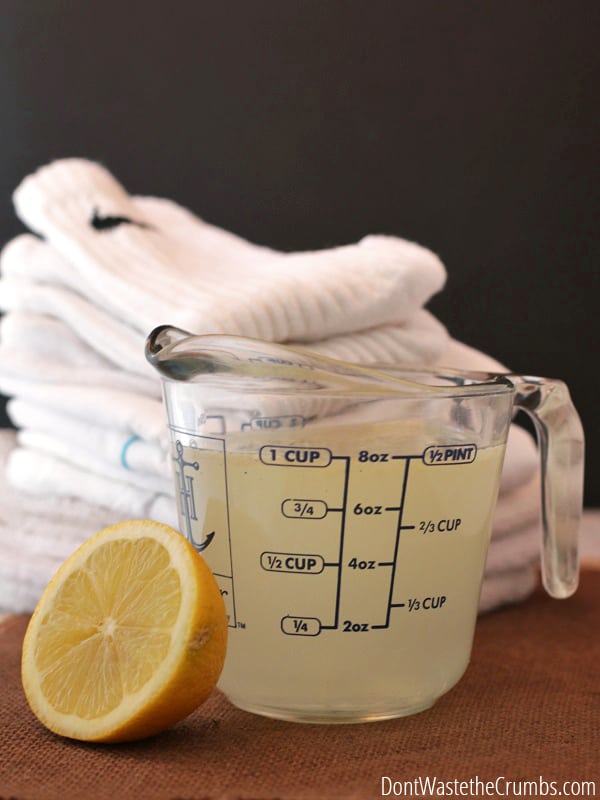
Watch How to Make Homemade Bleach Alternative
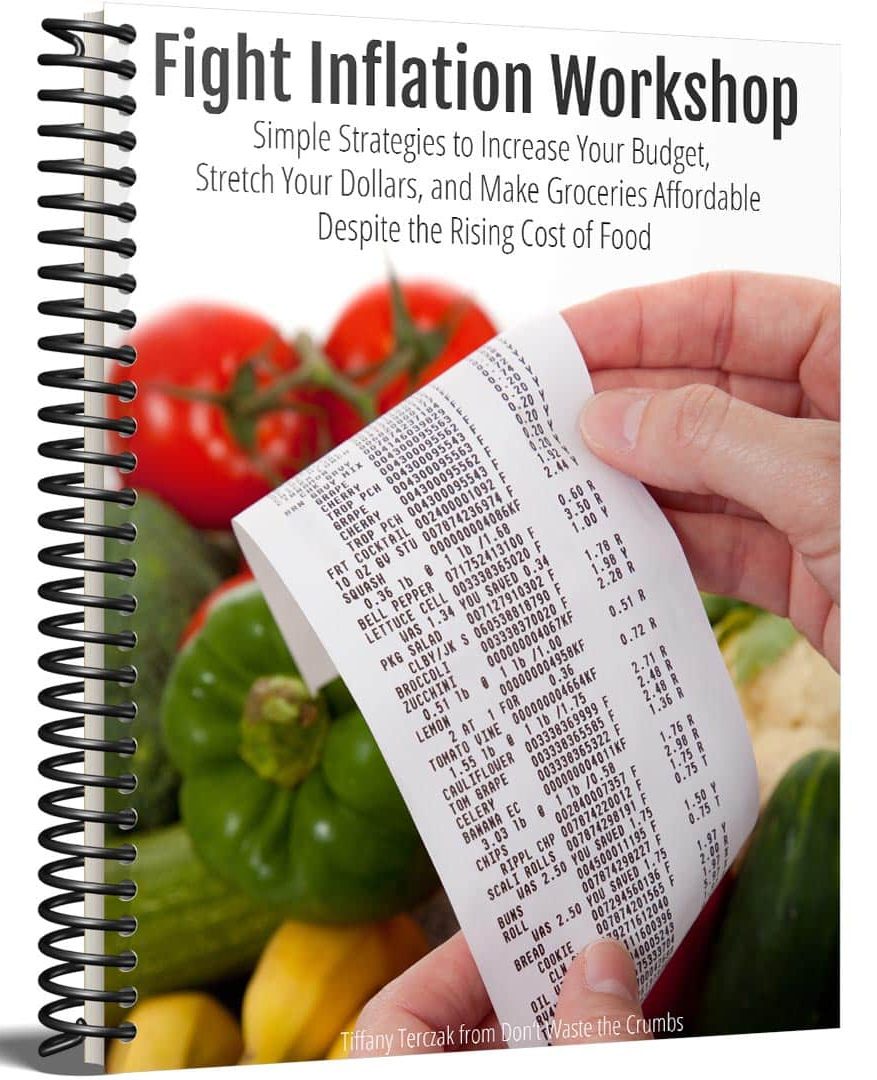



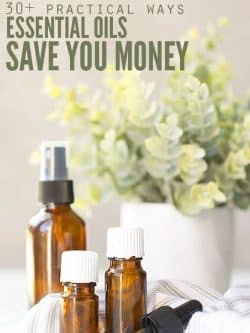
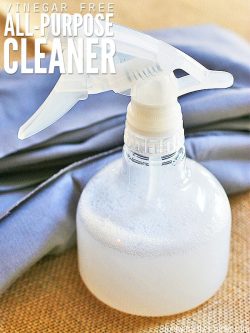
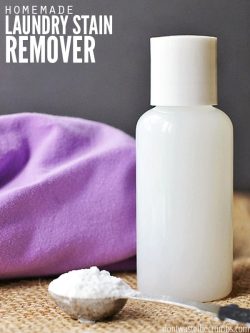

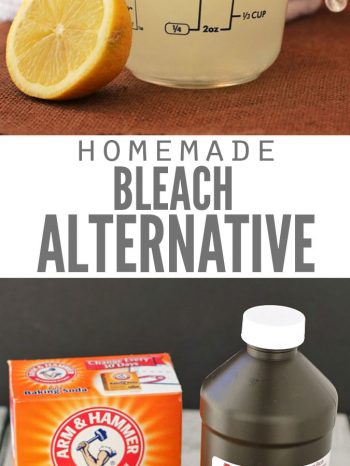
Hi there, do you have a half batch recipe? I want to put the solution into one spray bottle, if possible. Thank you!
Hello Jenn,
To make a half batch recipe, divide the measures by two. Hope this helps!